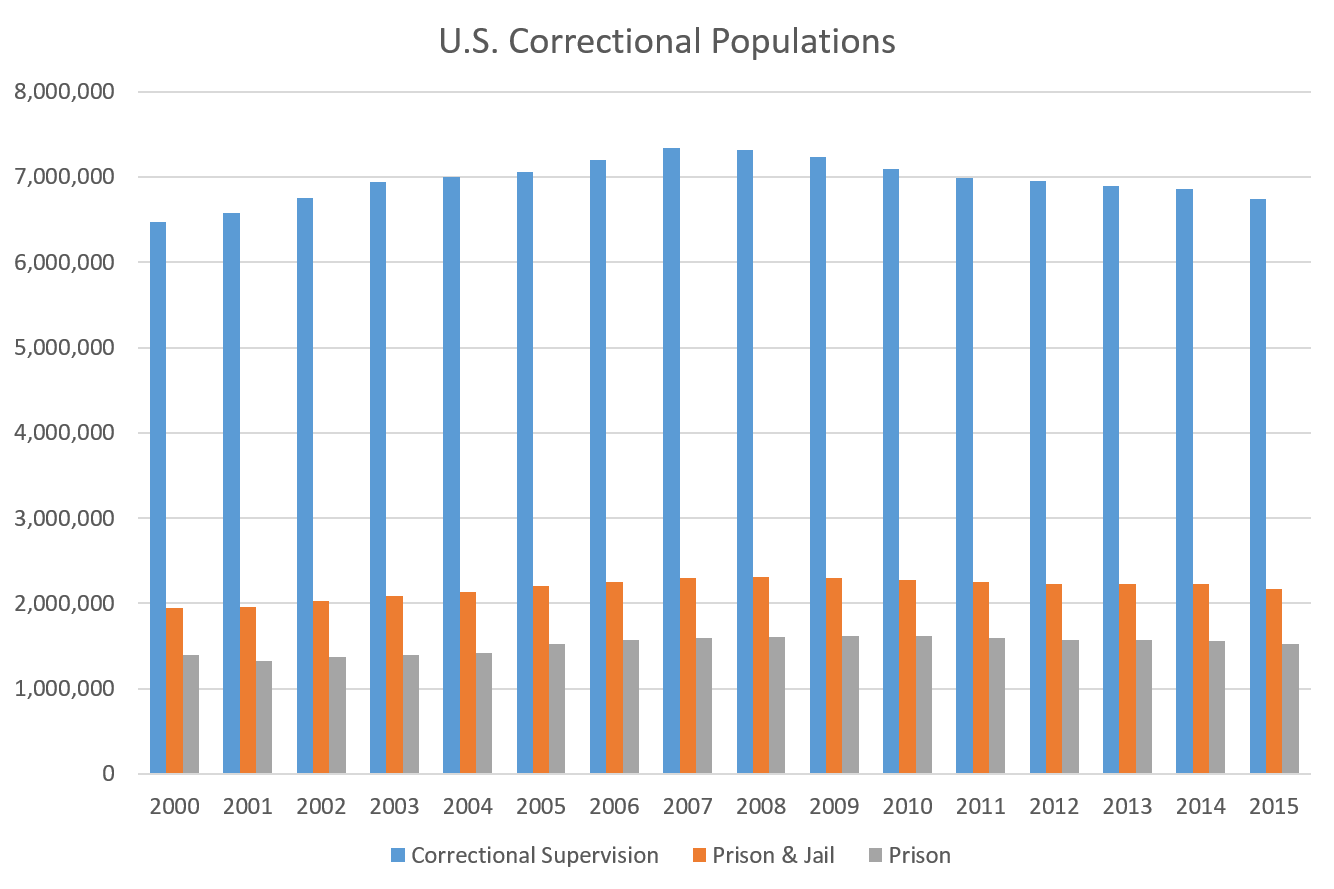Incarceration and Crime Rates Continue to Fall in Tandem
The percentage of adults under correctional supervision last year was the lowest since 1994.

The total number of people in American prisons and jails, which peaked in 2008, fell last year by more than 2 percent after rising slightly in 2014, according to numbers released yesterday by the Bureau of Justice Statistics. The 2015 total, 2,173,800, is the lowest since 2004, reflecting a gradual reversal of the incarceration explosion that began in the early 1980s.
The jail and prison population shrank by 51,300 last year. State prisons accounted for 42 percent of that drop, followed by local jails (31 percent) and federal prisons (27 percent). The U.S. incarceration rate fell from 690 to 670 per 100,000 people, which is still higher than that of any country except Seychelles.
Drug offenders accounted for half of federal prisoners and 16 percent of state prisoners in 2015. The decrease in the federal prison population was largely due to shorter drug sentences authorized by Congress and the U.S. Sentencing Commission. Commutations, which totaled 163 in 2015, accounted for a tiny share of the drop. The decrease in the state prison population was driven largely by sentencing reforms in states such as California, which in 2014 changed many drug and property felonies to misdemeanors.
The total correctional population, which includes people on parole and probation, also shrank last year, from 6,856,900 to 6,741,400. About 1 in 37 adults was under correctional supervision at the end of 2015, the lowest rate since 1994.
Crimes rates are falling along with incarceration rates. From 2010 to 2015, a new report from the Pew Charitable Trusts notes, "the nation's imprisonment rate fell 8.4 percent while the combined violent and property crime rate declined 14.6 percent." The two trends are related in at least two ways: A decline in crime means fewer arrests, and it makes sentencing reform more politically feasible. So far warnings that less incarceration would result in more crime have not been borne out. "In the 10 states with the largest imprisonment declines," Pew notes, "the crime rate fell an average of 14.4 percent, compared with 8.1 percent in the 10 states with the biggest growth in imprisonment."


Show Comments (2)